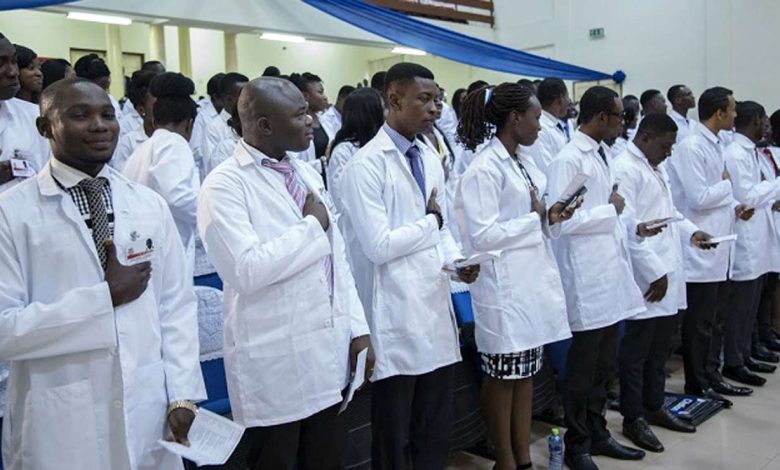
The Nigerian Government has revealed that there are currently about 55,000 licensed doctors in the country, tasked with attending to the increasing population of patients.
This announcement comes in light of the concerning trend of health professionals leaving Nigeria for opportunities abroad, with an estimated loss of 15,000 to 16,000 doctors over the past five years, while approximately 17,000 have been transferred elsewhere.
Prof. Ali Pate, the Coordinating Minister of Health and Social Welfare, shared these insights during an appearance on Channels Television’s ‘Politics Today’. He underscored the detrimental impact of the brain drain phenomenon on the nation’s healthcare sector, emphasizing the need for expanded training programs and initiatives to motivate healthcare workers who choose to remain in Nigeria.
The brain drain, commonly referred to as ‘Japa,’ has led to the departure of a significant number of young doctors, health workers, and professionals seeking better opportunities abroad. Despite the presence of approximately 300,000 health professionals across various cadres in Nigeria, only 55,000 are registered doctors, highlighting a concerning shortage in the healthcare workforce.
“There are about 300,000 health professionals working in Nigeria today in all cadres. I am talking about doctors, nurses, midwives, pharmacists, laboratory scientists and others. We did an assessment and discovered we have 85,000 to 90,000 registered Nigerian doctors. Not all of them are in the country. Some are in the Diaspora, especially in the US and UK. But there are 55,000 licensed doctors in the country.”
“The issue overall, in terms of health professionals, is that they are not enough. They are insufficient in terms of the skills mix. The population of doctor overall is about 7,600 doctors in Lagos and 4,700 or thereabout in Abuja. The doctor to population ratio in Abuja is 14.7 per 10,000 population. These are numbers that you can verify. In Lagos, it is about 4.6, even though the average is 2.2 by 10,000.”
Pate highlighted the uneven distribution of healthcare professionals across different regions, with a concentration of skilled doctors in urban centers like Lagos and Abuja. He stressed the need for a holistic approach to address these challenges, including the retention and training of healthcare workers across all cadres.
Recognizing the critical role of human resources in the healthcare sector, Pate emphasized the importance of retaining Nigeria’s best talents to sustain a robust healthcare system. While acknowledging the global nature of the brain drain phenomenon, he emphasized the need for concerted efforts to address the challenges within Nigeria’s healthcare sector.
“Now to the Japa you talked about, it is not only limited to Nigeria. It is a global phenomenon. Other countries don’t have enough. They are asking to take more. It is not only in Nigeria. It is happening in India, Philippines and other parts of Africa.”?
“In the last five years, we have lost about 15,000 to 16,000 and about 17,000 had been transferred. We’re barely managing. That’s why expanding their training will become logical. The same thing with nurses and midwives; they are also leaving. That’s why expanding the training is important to ensure those still around are well trained.”
He reiterated the government’s commitment to expanding training programs and improving working conditions to retain and attract skilled healthcare professionals.
Despite the challenges posed by brain drain, Pate praised the dedication of healthcare workers who choose to remain in Nigeria out of a sense of patriotism and intrinsic motivation. He emphasized the importance of recognizing and tapping into this motivation to bolster the country’s healthcare system.
